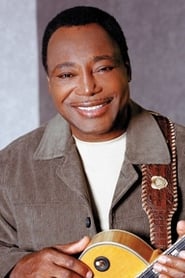 George Benson
Pittsburgh, Pennsylvania, USA
George Benson
Pittsburgh, Pennsylvania, USA

George Washington Benson (born March 22, 1943) is an American guitarist, singer, and songwriter. He began his professional career at the age of 19 as a jazz guitarist.
A former child prodigy, Benson first came to prominence in the 1960s, playing soul jazz with Jack McDuff and others. He then launched a successful solo career, alternating between jazz, pop, R&B singing, and scat singing. His album Breezin' was certified triple-platinum, hitting no. 1 on the Billboard album chart in 1976. His concerts were well attended through the 1980s, and he still has a large following. Benson has won ten Grammy Awards and has been honored with a star on the Hollywood Walk of Fame.
Benson was born and raised in the Hill District of Pittsburgh, Pennsylvania. At the age of seven, he first played the ukulele in a corner drug store, for which he was paid a few dollars. At age eight, he played guitar in an unlicensed nightclub on Friday and Saturday nights, but the police soon closed the club down. At age nine, he started to record. Out of the four sides he cut, two were released: "She Makes Me Mad" backed with "It Should Have Been Me", with RCA Victor in New York; although one source indicates this record was released under the name "Little Georgie", the 45rpm label is printed with the name George Benson. The single was produced by Leroy Kirkland for RCA's rhythm and blues label, Groove Records.
Benson attended and graduated from Schenley High School. As a youth he learned how to play straight-ahead instrumental jazz during a relationship performing for several years with organist Jack McDuff. One of his many early guitar heroes was country-jazz guitarist Hank Garland.
At the age of 21, he recorded his first album as leader, The New Boss Guitar, featuring McDuff. Benson's next recording was It's Uptown with the George Benson Quartet, including Lonnie Smith on organ and Ronnie Cuber on baritone saxophone. Benson followed it up with The George Benson Cookbook, also with Lonnie Smith and Ronnie Cuber on baritone and drummer Marion Booker. Miles Davis employed Benson in the mid-1960s, featuring his guitar on "Paraphernalia" on his 1968 Columbia release, Miles in the Sky before Benson went to Verve Records.
Benson then signed with Creed Taylor's jazz label CTI Records, where he recorded several albums, with jazz heavyweights guesting, to some success, mainly in the jazz field. His 1974 release, Bad Benson, climbed to the top spot in the Billboard jazz chart, while the follow-ups, Good King Bad (#51 Pop album) and Benson & Farrell (with Joe Farrell), both reached the jazz top-three sellers. Benson also did a version of The Beatles's 1969 album Abbey Road called The Other Side of Abbey Road, also released in 1969, and a version of "White Rabbit", originally written and recorded by San Francisco rock group Great Society, and made famous by Jefferson Airplane. Benson played on numerous sessions for other CTI artists during this time, including Freddie Hubbard and Stanley Turrentine, notably on the latter's acclaimed album Sugar. ...
Source: Article "George Benson" from Wikipedia in English, licensed under CC-BY-SA 3.0.





















